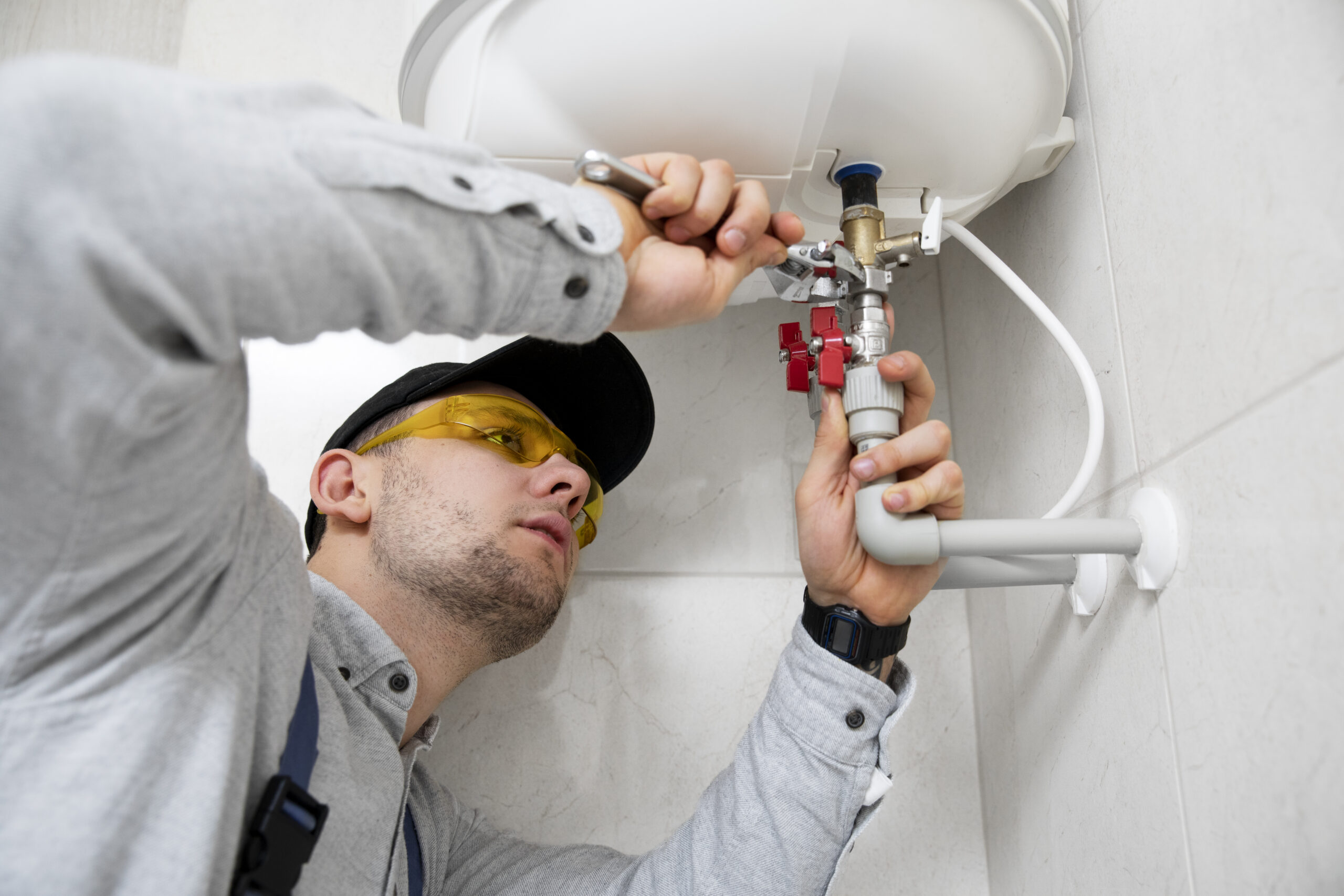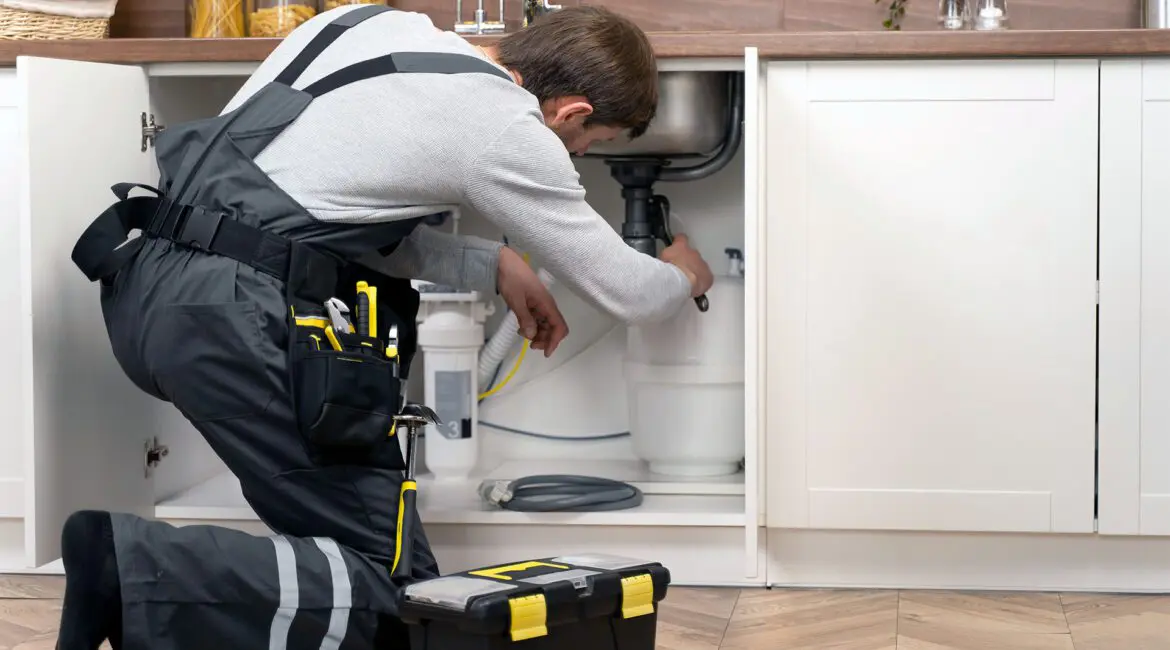Are you currently looking for facts and techniques about Expert Tips for Emergency Plumbing Repairs?

Pipes emergencies can strike any time, causing anxiety and prospective damages to your home. Whether it's a ruptured pipeline, a stopped up drainpipe, or a dripping faucet, understanding just how to handle the circumstance till a professional plumbing professional gets here can save you from more issues. This article provides vital emergency situation plumbing suggestions to assist you alleviate damage and gain back control throughout a pipes dilemma.
Shut off the Water Supply
The initial step in any type of pipes emergency is to shut down the water supply. For localized problems, such as a dripping faucet or toilet, turn off the shutoff near the fixture. In the case of a significant leak or burst pipe, locate your home's major water shut-off shutoff and transform it off quickly. Understanding the location of these shutoffs ahead of time can save useful time throughout an emergency situation.
Address Little Leaks with Temporary Repairs
Little leaks can swiftly end up being substantial troubles if left unchecked. Use these short-term fixes till specialist help arrives:
While these fixes aren't long-term, they can aid minimize water loss and damages.
Unclog Drains Pipes Safely
A clogged drain can be an irritating and messy issue. Here's just how to tackle it:
If these approaches don't function, avoid using extreme force, as it might aggravate the blockage.
Handle Overflowing Toilets
An overflowing bathroom can cause prompt turmoil. Below's what you must do:
Shut Off Your Water Heater
In specific emergency situations, such as a burst pipe, it's a good idea to shut off your water heater. This prevents getting too hot or damages to the device when water stops flowing. Turn off the power supply to the water heater (electrical or gas) and allow it cool off to avoid potential dangers.
Briefly Quit a Ruptured Pipeline
A ruptured pipe can lead to considerable water damage in minutes. To reduce the issue:
Call a specialist plumber right away to address the trouble completely.
Deal With Frozen Piping Thoroughly
In cooler climates, frozen pipelines are a common emergency. If you think an icy pipe:
Prevent Further Damages
Taking quick action to decrease damage can conserve you time and money in the future. Below's how:
. Have an Emergency Situation Plumbing Kit
Prepare a fundamental pipes emergency package to handle minor problems properly. Your package must include:
Having these tools handy can make a substantial difference in your ability to handle emergency situations.
Know When to Call a Specialist.
While quick fixes can help temporarily, specific pipes problems call for prompt professional attention. Call a plumbing technician if:.
Promptly getting in touch with a professional makes certain the concern is resolved appropriately and protects against more difficulties.
Verdict.
Pipes emergency situations can be overwhelming, however with the ideal understanding and tools, you can handle the scenario properly up until assistance arrives. By turning off the supply of water, addressing small leaks, and making use of short-lived repairs, you can lessen damage and keep your home safe. Remember, these tips are momentary options; always consult a licensed plumber to manage the source of the trouble. Prep work and fast thinking are your finest allies in any pipes emergency situation.
8 Helpful Tips for Managing Plumbing Emergencies at Home
If your plumbing system hasn’t failed once, wait for it because almost everyone has a story to tell. Sometimes, it could be simple emergencies such as a leaking pipe, a blocked cistern, or even a big burst pipe. In situations like this, you need to have some handy tips to save you some money and from possible damages.
Take care of minor issues early.
Sometimes, you could have avoided an emergency by taking proactive measures while it was still early. Some major plumbing emergencies can be a result of an ignored minor issue. We recommend that you have items like plumbing tapes and other related items. A plumbing tape can allow you to manage minor leaks before the plumber arrives.
Cut off the water supply.
This tip is essential in almost any type of leakage problem. For problems like minor leakages in the toilet or kitchen, turn off the supply that takes water to the affected pipes. If the leakage is a major pipe, you must shut off the supply valve to the entire building. This will help you avoid flooding your home and neighbors if you share a flat.
Know your plumbing system
Folks typically move into a new apartment without understanding the water supply around the building. This can prove disastrous if a water emergency arises and the plumber is far away. The previous tip will prove useless if you don’t practice this one. More importantly, know where your water shut-off valve is located – you’ll need that knowledge to prevent potential home floods.
Have some common handy tools
There are lots of plumbing emergencies that you can handle without hiring a plumber. That’s why you must keep some tools available always. Some tools that you can use to fix simple plumbing emergencies easily include plumbing tapes, screwdrivers, thread seal tapes, plungers, pliers, tape measures, and rubber gloves.
Insulate your pipes from cold
You’ll save yourself from many plumbing expenses if you protect your water pipes from the cold. This is because of the harmful effects that cold weather can have on your pipes. During winter, your pipes can burst from being overly expected to freezing temperatures. So, make sure insulators are there to keep the pipes working correctly.
Avoid practices that will clog your toilet.
Many people indulge in practices that can damage the plumbing system of the entire building. One of these is when they use their toilet to dispose-off garbage. They flush all kinds of things, such as paper towels, bandages, hairs, female sanitary products, etc., down the toilet. This will block your toilet in the long run, incurring unnecessary expenditures. Dump such waste in the trash instead.
Check your dials regularly.
Sometimes, there could be leakages in your home without noticing them in time. So, constantly monitor your water meter dial. If the dial is reading when there is nobody using water, this is an indicator that there is leaking. Check for leaks immediately. Call a plumber as soon as possible if you can’t find any.
https://www.constructionplacements.com/8-helpful-tips-for-managing-plumbing-emergencies-at-home/

Hopefully you enjoyed our excerpt on What to Do While Waiting for an Emergency Plumber. Thanks for taking the time to browse our short article. If you please take the opportunity to share this page if you enjoyed reading it. We cherish your readership.
Click Here